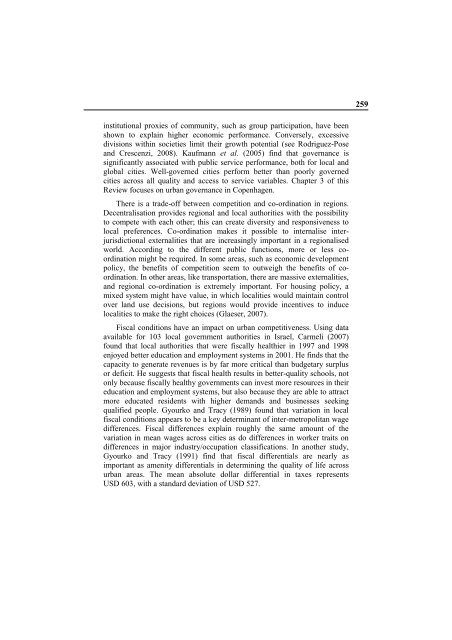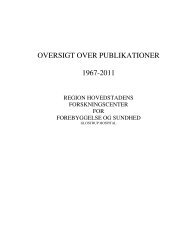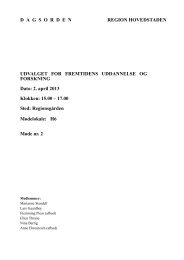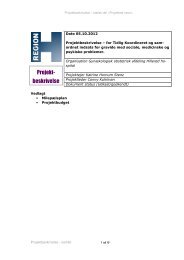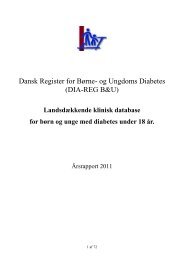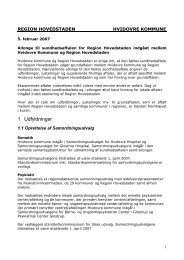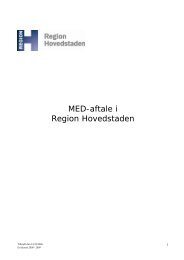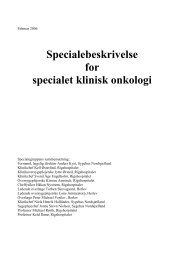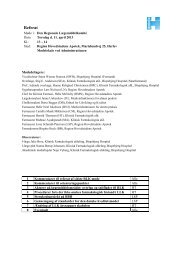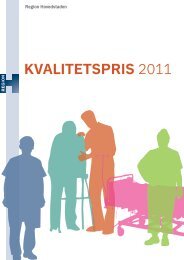Territorial Review Copenhagen - Region Hovedstaden
Territorial Review Copenhagen - Region Hovedstaden
Territorial Review Copenhagen - Region Hovedstaden
You also want an ePaper? Increase the reach of your titles
YUMPU automatically turns print PDFs into web optimized ePapers that Google loves.
259<br />
institutional proxies of community, such as group participation, have been<br />
shown to explain higher economic performance. Conversely, excessive<br />
divisions within societies limit their growth potential (see Rodriguez-Pose<br />
and Crescenzi, 2008). Kaufmann et al. (2005) find that governance is<br />
significantly associated with public service performance, both for local and<br />
global cities. Well-governed cities perform better than poorly governed<br />
cities across all quality and access to service variables. Chapter 3 of this<br />
<strong>Review</strong> focuses on urban governance in <strong>Copenhagen</strong>.<br />
There is a trade-off between competition and co-ordination in regions.<br />
Decentralisation provides regional and local authorities with the possibility<br />
to compete with each other; this can create diversity and responsiveness to<br />
local preferences. Co-ordination makes it possible to internalise interjurisdictional<br />
externalities that are increasingly important in a regionalised<br />
world. According to the different public functions, more or less coordination<br />
might be required. In some areas, such as economic development<br />
policy, the benefits of competition seem to outweigh the benefits of coordination.<br />
In other areas, like transportation, there are massive externalities,<br />
and regional co-ordination is extremely important. For housing policy, a<br />
mixed system might have value, in which localities would maintain control<br />
over land use decisions, but regions would provide incentives to induce<br />
localities to make the right choices (Glaeser, 2007).<br />
Fiscal conditions have an impact on urban competitiveness. Using data<br />
available for 103 local government authorities in Israel, Carmeli (2007)<br />
found that local authorities that were fiscally healthier in 1997 and 1998<br />
enjoyed better education and employment systems in 2001. He finds that the<br />
capacity to generate revenues is by far more critical than budgetary surplus<br />
or deficit. He suggests that fiscal health results in better-quality schools, not<br />
only because fiscally healthy governments can invest more resources in their<br />
education and employment systems, but also because they are able to attract<br />
more educated residents with higher demands and businesses seeking<br />
qualified people. Gyourko and Tracy (1989) found that variation in local<br />
fiscal conditions appears to be a key determinant of inter-metropolitan wage<br />
differences. Fiscal differences explain roughly the same amount of the<br />
variation in mean wages across cities as do differences in worker traits on<br />
differences in major industry/occupation classifications. In another study,<br />
Gyourko and Tracy (1991) find that fiscal differentials are nearly as<br />
important as amenity differentials in determining the quality of life across<br />
urban areas. The mean absolute dollar differential in taxes represents<br />
USD 603, with a standard deviation of USD 527.


